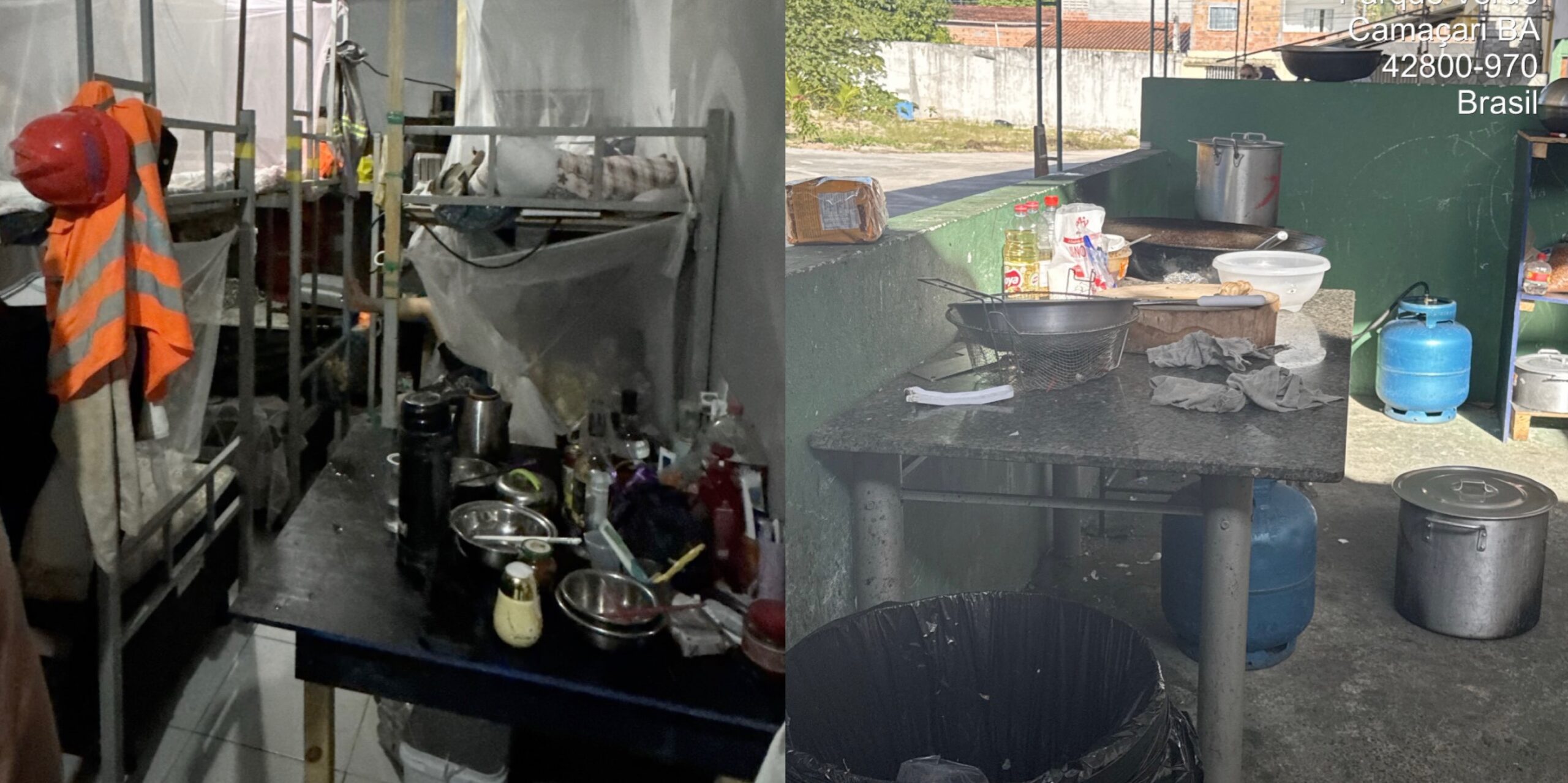
Work on company’s first manufacturing site in Brazil shut down; Contract with Jinjiang Construction Brazil terminated.
Brazilian authorities have rescued 163 Chinese workers being held in “conditions analogous to slavery” at the factory construction site of Chinese electric car-maker BYD in the municipality of Camaçari in Bahia state, and have shut the site down, Brazil’s Public Ministry of Labour (MPT) revealed on 23 December.
On the same day, BYD’s Brazilian branch said it had terminated its contract with Jinjiang Construction Brazil, one of its contractors on the project, for what it called “serious irregularities”.
BYD Auto do Brasil said it would be transferring the workers to hotels.
At a hearing in front of multiple government ministries on 26 December, BYD and another contractor, JimJiang Open Engineering, pledged to look after the rescued workers until negotiations for the termination of their employment contracts were finalised.
They also pledged to hand over all documents relating to the workers and to provide detailed information about where they were being housed.
The MPT said evidence collected during weeks of joint inspections established the 163 as “victims of international trafficking for the purpose of labour exploitation in conditions analogous to slavery”.
Beds without mattresses
Site investigations carried out from mid-November revealed what the MPT called “an alarming picture of precariousness and degradation” in four main barracks.
Investigators found instances of workers having to sleep on beds without mattresses, and “especially critical” sanitary conditions, with only one bathroom for every 31 workers, forcing them to wake up at 4am to form a line in order to be ready to leave for work at 5:30am.
Lacking laundry facilities, workers had to use bathrooms to wash clothes.
The kitchens operated in “alarming” conditions, with no adequate cupboards for food storage, and food stored near bathrooms in unsanitary conditions.
Only one barracks had an improvised dining hall, with wooden benches and tables in a semi-covered area, forcing most workers to eat meals in their beds.
In a room occupied by a cook, pots with prepared food were found left open on the floor, exposed to dirt and without refrigeration, to be served the following day.
The workers consumed water directly from the tap, without treatment.
Eight toilets for 600 workers
Conditions at the construction site also disturbed inspectors.
The cafeteria used coolers to serve meals without ensuring minimum hygiene conditions, MPT said.
There were just eight chemical toilets for approximately 600 workers. MPT said they were in a “deplorable state”, without toilet paper, water or adequate maintenance.
The workers were exposed to the sun, and showed visible signs of skin damage.
Several workplace accidents were recorded, including one case in which a worker suffered an accident owing to sleep deprivation caused by inadequate housing conditions and long working hours.
Another serious case involved a worker who suffered an eye injury in April and, despite requesting ophthalmological care, never received the appropriate medical follow-up.
Forced labour
MPT concluded the workers were victims of forced labour.
They were required to pay a deposit, and had 60% of their wages withheld, with the remainder paid in Chinese yuan.
Workers faced excessive costs for terminating their contracts, and had their passports withheld.
If workers terminated their contracts early, they lost both their deposits and their withheld salaries.
They also had to pay for the ticket home to China, and pay back the cost of the outward ticket, MPT said.
“To give you an idea,” MPT said, “if a worker tried to terminate the employment contract after six months, he would leave the country without actually receiving anything for his work, since the discount of the deposit, the ticket to come to Brazil and the payment of the return ticket would, in practice, constitute a total confiscation of the amounts received by the workers throughout the employment relationship.”
The task force responsible for the inspections included the MPT, the Ministry of Labour and Employment, the Public Defender’s Office of the Union, the Federal Highway Police, the Federal Public Ministry, and the Federal Police.
‘First site in Brazil’
BYD, which stands for “Build Your Dreams”, announced an agreement to acquire land in Camaçari in July 2023 to build what it called its first industrial complex in Brazil.
The company said it would invest around $495m (R$3bn) developing three manufacturing units simultaneously: one for chassis for buses and trucks; one for hybrid and electric vehicles; and one for lithium and iron phosphate processing.
“This is an extremely important moment for BYD in the Americas,” said Stella Li, executive vice president of BYD, and chief executive of BYD Americas, at the time.
She added: “These new factories in Bahia will bring innovation and the highest standards in technology, this will allow the introduction and acceleration of electromobility in the country, a key movement to combat climate change and really improve people’s quality of life.”
- Subscribe here to get stories about construction around the world in your inbox three times a week
Comments
Comments are closed.







I’m shocked. I just watched an advertisement for a new BYD car, priced starting at just over £33,000.
I wonder if there will be a news item about this case. I won’t hold my breath.